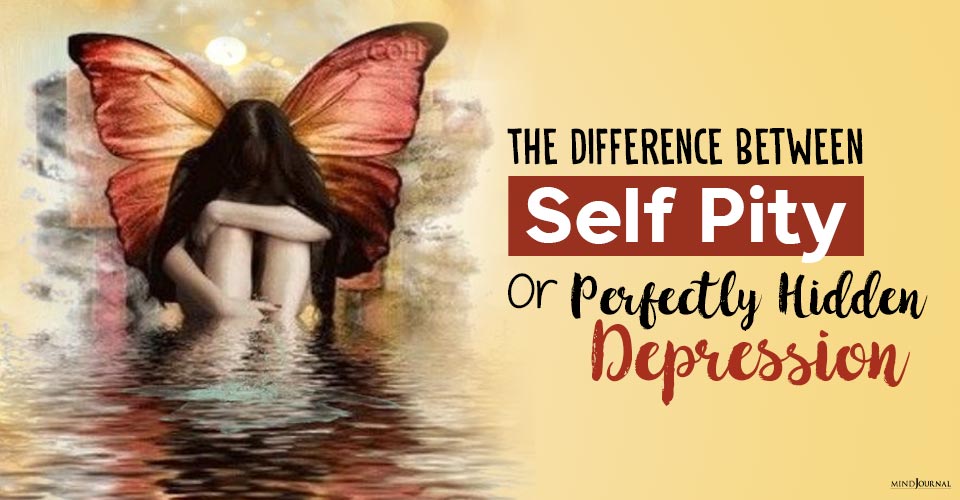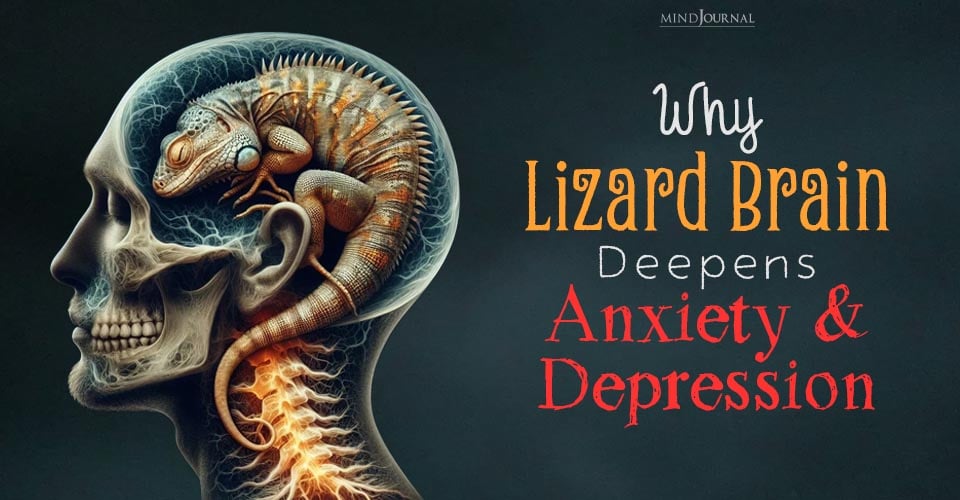It’s difficult to be around someone who’s always whining. What does whining sound like? “I can’t get a break.” “Bad things seem to always happen to me.” “Wow, you’re lucky. My kids never call.” “My ex took my best years and I’ll never get them back.”
Basically, you believe that your life has never and will never be happy and you don’t waste much time telling others about it. The irony lies in the fact that self pity prevents you from taking responsibility for that happiness or realizing what could potentially be created.
I wouldn’t wish the habit of self pity on anyone. It’s paralyzing and hard to break, as you continually see life through a filter of blame and rejection.
Related: Self Liberation: How To Rewrite Your Toxic Life Stories
Self Pity Versus Depression
But self pity isn’t the same as the negativity or loss of hope in depression. If clinically depressed, you’re dealing with an unwanted and unchosen barrage of negative, destructive thoughts and emotions.
When you’re drowning in those thoughts and emotions, it’s very hard to be engaged with others or interested in anything outside of your own head. At times, you’re literally fighting for your own life. That very detachment can be unfairly criticized and labeled as “You’re just feeling sorry for yourself. Snap out of it, and start thinking about someone other than yourself.”
That’s like telling someone who’s deaf to listen — or blind to see. At that moment, until the depression subsides, the mind isn’t capable of healthy thinking. To compound things, the more severe the depression, the more difficult it is to crawl out.
This Ted Talk video with Andrew Solomon eloquently describes the struggle.
Society can make healing more difficult by its continued prejudice and misunderstanding about depression. Perhaps you might delay seeking help, afraid that revealing all that is going on in your head to others might make them think you’re simply whining.
In studies I conducted in 2015, a major reason women gave for not seeking therapy was how it would be perceived socially. For men, the primary reason was that they believed that they could solve their problems themselves. (It’s true that depression can remit on its own, with time. But not always — and not without doing damage while it exists).
We, as a culture, have to stop looking down on ourselves or others for experiencing what is a disease.
Related: 10 Signs Of Self-Hatred And How To Overcome
What terrifies someone who experiences perfectly hidden depression?
If you’re unfamiliar with perfectly hidden depression, here is an early video of me describing what it looks like.
Perfectly hidden depression is when you mask your depression by outwardly appearing perfectionistic. You won’t allow your pain or sadness to be expressed, and you are petrified of anyone being able to see an inkling of self-doubt or sorrow, fatigue or vulnerability.
So you’re seen by others as a “mover and a shaker” — you know how to get things done, and done well. Your life looks great; absolutely no whining is coming from you. You count your blessings every day and there’s not a self pitying bone in your body.
No one sees what you’re hiding inside. No one knows the amount of insecurity, self-loathing, or shame that exists in your reality. Because it’s perfectly hidden. So, the fear of exposure can become intense. It can feel as if your whole world will cave in if anyone finds out that you struggle — or that you have secrets you’ve never shared.
The fact is that it won’t; the far greater risk is getting lost in your own silent and very lonely hell.
Self-Compassion Versus Self Pity
Acknowledgment of pain or hurt from the past or the present leads to understanding. If you wallow in that hurt, it is possible for it to turn into self pity if you allow that pain to define you. But to make the connection between painful experiences and who you are today and, in turn, how you’re making decisions and functioning is an extremely helpful process.

Self-compassion is healing. Self pity is destructive. There’s an immense difference between the two. Yet all too often we get them confused and because of that, you may be alone in your struggle with depression.
Related: 6 Life Changing Steps To Practice Mindful Self Compassion
If you know someone suffering from depression, listen to them with compassion, support them as you can, and encourage them to seek appropriate treatment. And have the same care and compassion for yourself.
Check out Dr. Margaret Rutherford’s best-selling book, Perfectly Hidden Depression on Amazon.
Written By Dr. Margaret Rutherford Originally Appeared On Dr. Margaret Rutherford
Frequently Asked Questions
Can depression and dementia cause sleepiness?
Fatigue and sleepiness are common symptoms of clinical depression. Excessive sleepiness has also been found common in patients with later-stage dementia.
Why are depression and stress regarded as psychological factors?
Depression and stress can arise due to psychological conditions. However, there can be biological, genetic, environmental, and other physiological factors involved.
Why do I look for relationships to help with my depression?
Love, support, and care can definitely make you feel happy and bring down any negative feelings of anxiety, stress, or depression.
Is it possible to kiss depression away?
Yes. You can kiss depression away by taking the help of mental health professional, medication, and psychotherapy, along with natural remedies like exercise, yoga, meditation, etc.










Leave a Reply